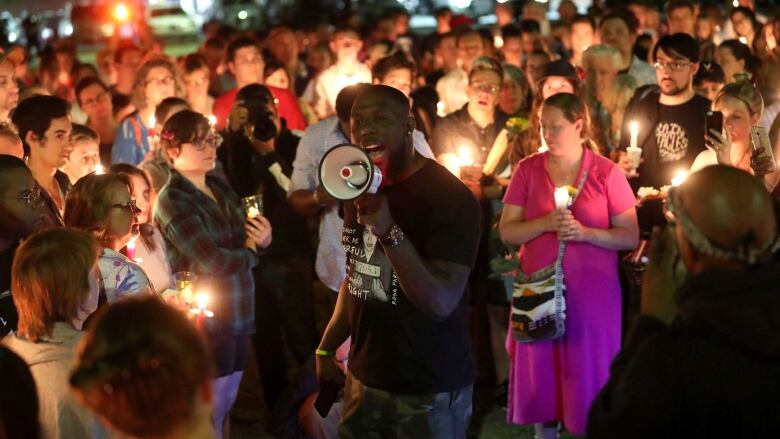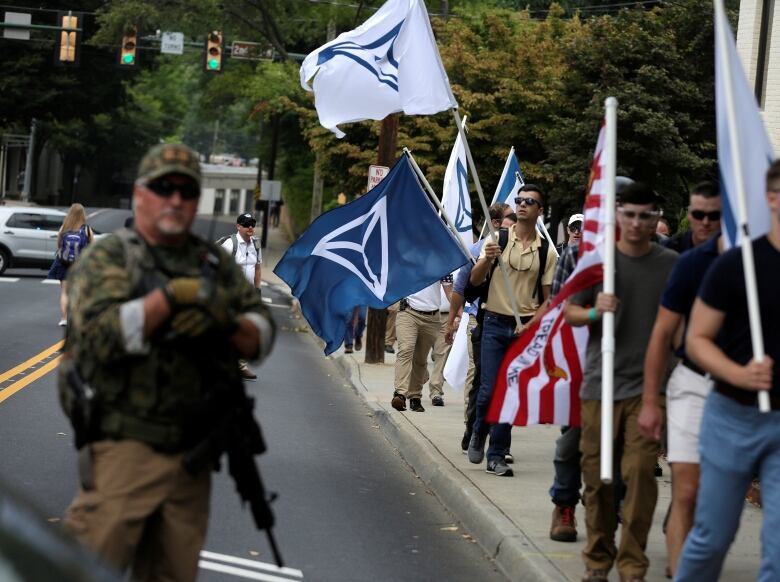Despite what we witnessed in Charlottesville, norms are still at work in U.S. society
There are things Americans won't tolerate, regardless of political affiliation

Recent events in Charlottesville represented an attempt by white supremacists to move their practices further intomainstream American politics. Instead, it elicited a broad coalition in opposition. In that sense, the rally was a failure.
Every social conflict has its own accepted rules of engagement. They are a combination of both formal laws and informal customs that govern what is and is not acceptable to the society in which the conflict plays out. Movement leaders understand these rules, if only intuitively, and adopt a distinctive range of protest strategies in response. Collectively, social scientists refer to a given movement's set of strategies as its "repertoire of contention."
In Charlottesville, white supremacists attempted to expand their repertoire on two fronts:the symbolism they openly employed, and the degree of weaponry and violence both threatened and actual used in support.

As Georgetown political scientist Daniel Nexon pointed out on Twitter, the protest constituted an evolution from longstanding practice by white supremacists, and not some novel approach cut from a new cloth. Certainly, it was not the first such march of the summer, even in Charlottesville. White supremacists had also gathered in early May in a short-lived protest of the removal of a Jim Crow-era statue of Confederate General Robert E. Lee.
This time, however, a much larger crowd of far-right white supremacists assembled to protest that same statue's removal, and they represented a broader coalition of groups. The Southern Poverty Law Center, which tracks white supremacist groups across the U.S., declared the Charlottesville protest the largest such gathering in at least a decade. According to one unofficial estimate, there were about 500 supremacists last Saturday, with perhaps twice the number of counter-protesters opposing them.
-
Despite Charlottesville violence, U.S. cities vow to remove Confederate statues
-
'Not the Charlottesville I know': Residents chase away white supremacist after deadly rally
Those watching found it jarring, to say the least, to see so many Americans gathered in one place openly and gleefully employing Nazi symbolism and chants, wielding KKK-inspired torchesand so on. Even the event's promotional poster employed Nazi-themed imagery. It was quite simply something most have not seen in their lifetimes.
The event saw the threat and use of violence deployed differently as well. While the prominent display of assault weaponry is by no means novel in the U.S., the scale again was nonetheless striking. Virginia Governor Terry McAuliffe claimed that the 1,000-strong police force present in the city felt out-gunned by the militias accompanying the protesters. Reports from people at the scene claim the police repeatedly failed to intervene in clashes between protesters and counter-protesters, with bloody results.
Looming above all was the tragic death of counter-protester Heather Heyer, who was killed when a car slammed into a group of protesters. But even this constituted an evolution, not a revolution in strategy. Indeed, a number of Republicans in several states are attempting to enact laws to shield drivers who hit protesters.
Taken together, the event presented an image of a newly emboldened and mobilized white supremacist movement, apparently inspired by the election and subsequent actions of President Donald Trump.
That's the bad news. The good news is that reaction to the events in Charlottesville has been swift and, by current standards, relatively bipartisan in its disapproval.
Mr. President, there is only one side: AGAINST white supremacists, neo-Nazis, anti-Semites & the KKK. They have no place in America or GOP.
—@RepLanceNJ7Though Trump and some supporters have claimed there was violence and fault on both sides of the conflict, few other public figures have done so. Indeed, Fox News reportedly had trouble finding Republicans willing to defend the president's comments on air. Ironically, Trump's return on Tuesday to a posture of defiant ambivalence, insisting there was both merit and blame on both sides, has only increased pressure on other Republicans to take a stand on the issue.
More and more have done just that, as a stream of prominent GOP figures have denounced the ideas of white supremacy that motivatedthe weekend's protests. Trump was even forced to disband his business advisory council as the stream of CEOs resigning in protest threatened to turn into a flood.
Assessing the president's tone
Public opinion has come out against the president's approach as well. In a recent survey, just 27 per cent of Americans said he had been strong enough in his response to the events. Though a majority of Republican respondents supported the president's tone, one in five of them agreed he had not been strong enough. And some of the people who participated in the rallies have since lost their jobs, been disowned by their families or otherwise suffered personal and professional consequences.
These developments suggest there are still norms at work in U.S. society: things Americans won't tolerate, regardless of political affiliation. That's important, as it makes clear there are shared understandings on whichto build,in what remains a deeply polarized period in U.S. history.
Confrontations will no doubt continue. The U.S. is nowhere near the end of this particular cycle of protest and counter protest. So long as the country's formal political institutions remain unable to meaningfully grapple with the problems citizens are most concerned with, political debate will play out in other venues, including through street protests.
Accordingly, there will be more Charlottesvilles. Each time, it will be incumbent on Americans and Canadians, for we are by no means immune from such politics to stand up against such intolerance, hate and violence.
This column is part ofCBC'sOpinion section.For more information about this section, please read thiseditor'sblogandourFAQ.













_(720p).jpg)


 OFFICIAL HD MUSIC VIDEO.jpg)
.jpg)



























































































